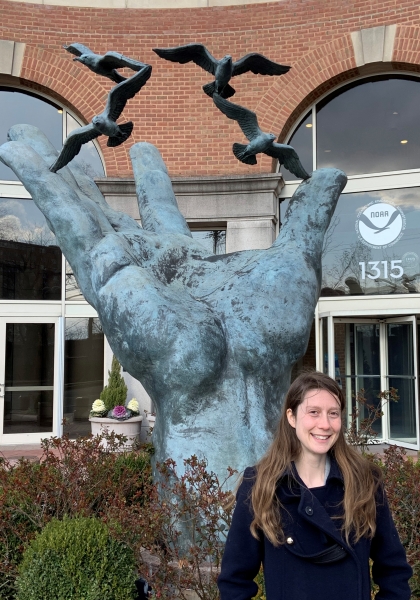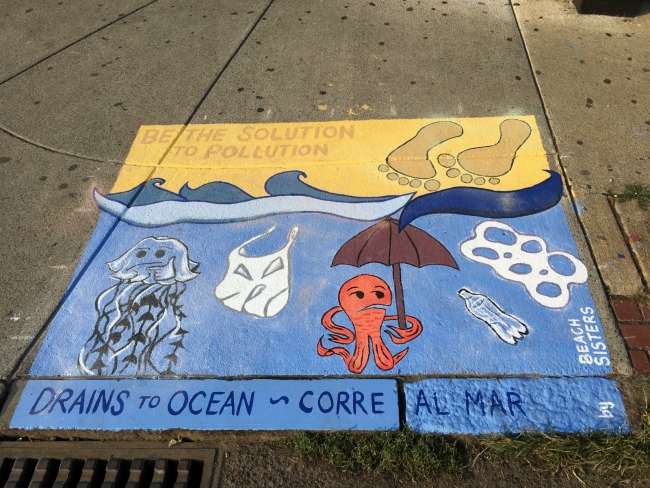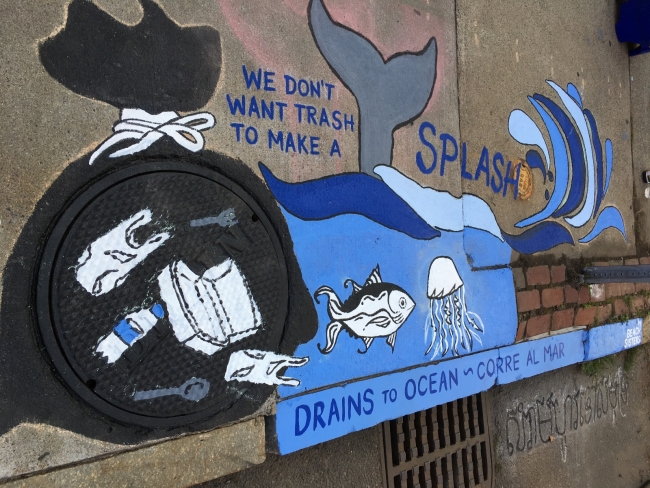Guest Blog by: Amanda Dwyer - Marine Debris Specialist (2020 Sea Grant Knauss Fellow)
About three weeks ago, I started my new position as the new Sea Grant Knauss Fellow working in the National Oceanic and Atmospheric Administration’s Marine Debris Program (NOAA MDP). The Knauss fellowship provides a unique, educational, and professional experience to graduate students who have an interest in the ocean, coastal, and Great Lakes resources, and in the national policy decisions affecting those resources. During this one year experience, fellows will gain important professional development skills by developing a network both within and across government agencies. They are also encouraged to gain new skills through attending workshops and presenting at conferences.

In my role as the Marine Debris Program Specialist, my focus is on a new initiative to reduce waste throughout NOAA’s National Ocean Service (NOS) offices. The mission of the Marine Debris Program is to investigate and prevent the adverse impacts of marine debris. By changing our behavior to produce less waste, we will create fewer opportunities for the creation of marine debris. As a way to tackle this important issue, I will be working with what we call the NOS Zero Waste Team. Although reaching zero waste may be challenging to achieve, we are aiming to reduce our office waste to minimize the impacts of marine debris on our ocean and Great Lakes. I will also be working to better understand different management approaches for waste and recycled items from bin to end destination. I will then work with the Team to develop ideas to reduce the amount of waste we produce in our facilities, as well as encourage participation from staff across NOS.
The Knauss Fellowship is unique, in that your position during the fellowship can be based in an area you are interested in, even if it was not your focus in graduate school. For me, my interest in marine debris developed out of my involvement in science, technology, engineering, and math, also known as STEM, outreach in my local community. I had slowly been taking steps to reduce waste in my personal life but became more motivated after working with local youth taking actions to reduce marine debris in their coastal community through the Beach Sisters. They are a collaborative program between Northeastern University’s Marine Science Center and Girls Inc. of Lynn. Living in a coastal community, the Beach Sisters were interested in decreasing litter in their city that could easily become marine debris. One project involved the Beach Sisters working with a local artist on a storm drain art project to provide clear messaging that litter on the streets can end up washed down the storm drain and out in the ocean. Seeing the passion these youth had for protecting their coastal environment, inspired me to take bigger steps in my personal life to reduce waste, and also led me to this fellowship position to learn more about marine debris issues and solutions in the NOAA MDP office.
In addition to my role working on waste reduction, I will also have the opportunity to learn more about international marine debris issues, as well as congressional legislation on marine debris, and will participate in outreach and education events. By the end of this fellowship, I aim to help lead the NOS Zero Waste Team to achieve our goal of reducing waste and providing resources so other NOAA offices can do the same. I also plan to complete a marine debris themed Science on a Sphere presentation to educate people on its impacts on the environment. This spring, alongside the NOS Zero Waste Team, I will be producing a series of blogs focused on various tips to reduce waste, so stay tuned to learn more about what actions you can take to help tackle this important issue!



I have been working in the field of plastics recycling and biodegradation
I was involved in the development of ASTM 7081 marine biodegradable plastics and have give a number of lectures in this area (us California and Europe)
I am an adjunct prof at Uml and have had projects on recycling of marine plastics
I am currently supporting a PhD student looking at nanoplastic fibers in the aquatic environment at Uml and techniques for identification and separation
Very interested to participate with your activities